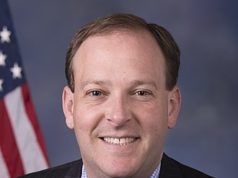– Income-Based System Will Directly Lower Tax Bills Through Rebates –
– Bipartisan Legislation Funded Without New Taxes; Local Support Grows-
Pearl River, NY – May 19, 2011 – (RealEstateRama) — As an increasingly heated debate on property tax relief continues to focus solely on a tax cap, Assemblywoman Ellen Jaffee (D-Suffern) today announced she has introduced legislation (A7673) that creates an income-based tax “circuit breaker” as a viable alternative that actually lowers homeowners’ tax bills while protecting quality education.
Bi-partisan, fully-funded, and not requiring of any new taxes, Jaffee’s legislation is designed to provide maximum tax relief for middle-class families and senior citizens in the form of a rebate, while providing maximum flexibility to cash-strapped school districts and municipalities threatened by a tax cap.
“The urgent need for property tax relief demands we lower people’s bills, not their annual tax hikes, which is why the circuit breaker is our best path forward,” Jaffee said. “It also spares our schools the dangerous consequences of a tax cap, and even dedicates additional funding to strengthening education statewide.”
Carried by Sen. John Bonacic (R-Orange County) in the State Senate, Jaffee’s circuit breaker bill would apply to taxpayers earning up to $250,000 per year who pay a disproportionate share of their income in property taxes. These New Yorkers would receive a credit on their 2012 income taxes depending on their income level and the percentage of property taxes they pay as a portion of their income.
The tax credit would consist of 70% of any amount paid in property taxes beyond the percentages and income levels are noted below:
HOUSEHOLD GROSS INCOME MAXIMUM REAL PROPERTY TAX
$100,000 or Less 6% of Household Gross Income
$100,000 – $150,000 6% of $100,000, Plus 7% of up to the next $50,000
$150,000 – $250,000 6% of $100,000, Plus 7% of $50,000 Plus 8.5% of Household Gross Income Above $150,000.
An example of this in action would be for a household making $75,000 a year and paying $7,500 annually in property taxes, or 10% of their gross income, which is 4% ($3,000) over the circuit breaker’s threshold. This household would be entitled to receive 70% of that 4% overage, and would be granted a rebate of $2,100.
Unlike other, previous circuit breaker proposals, Jaffee’s plan is fully-funded through pre-existing tax provisions in state law, which means no new taxes will be required to finance it. To do this, the legislation would maintain the 2011 income tax rate for those earning $1 million or more through 2013, which is otherwise set to expire at year’s end.
Under this funding mechanism, an estimated $3.36 billion dollars would be generated to finance property tax relief. The circuit breaker itself is estimated to cost no more than $2.3 billion, and any surplus funding would be dedicated to two separate funds that finance additional property tax relief and also aid to local schools.
Already, support within Rockland County is building for Jaffee’s circuit breaker measure, spurred in part by dissatisfaction with the limited scope and potential negative consequences of the Governor’s proposed tax cap.
Jen Marraccino, a Nyack homeowner with three school-aged children and a fourth on the way, cited the need to balance much-needed property tax relief with support for local education in her backing of the circuit breaker.
“The financial challenge of raising a family here is no easy feat, and it certainly makes property tax relief a priority, but I can’t support reform that shortchanges my kids’ education. That’s why I can’t support a tax cap,” Marraccino said. “The circuit breaker makes more sense to me. It will lower tax bills for many families, and Assemblywoman Jaffe’s proposal has the potential to even increase funding for our schools. It’s a plan I can support as both a mom and a taxpayer.”
“The debate over property taxes shouldn’t be about whether or not to pass a tax cap, but rather how we can best provide relief to struggling homeowners, and in this respect the circuit breaker clearly wins out,” Jaffee added.
Contact:
Mike Virga
845-624-4601/845-235-2443



